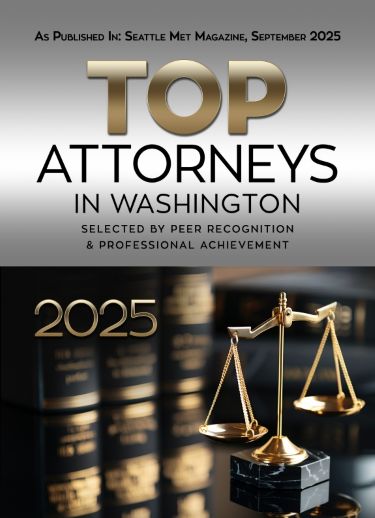Medical Malpractice
Seattle Medical Malpractice Attorneys Committed to Securing Your Rightful Compensation
Medical Malpractice
Medical malpractice, often referred to as medical negligence, occurs when a healthcare professional fails to meet the expected standard of care, resulting in serious injuries or death. It’s important to recognize that adverse outcomes or complications don’t necessarily indicate malpractice. Even under the best of care, poor health outcomes can occur.
If you or a loved one has suffered severe injuries due to medical negligence, it is crucial to explore your legal options. The dedicated team at Menzer Law Group is here at (206) 903-1818 to carefully review your case and determine if we can significantly enhance your legal outcomes.
Our medical malpractice attorneys bring decades of experience supporting victims of medical malpractice and their families and addressing the unique challenges and enduring consequences of these incidents. We handle cases involving:
Birth Injuries
A medical provider’s negligence during the birthing process can lead to various injuries, some of which may cause permanent damage that forever alters a child’s life and that of their family. Common birth-related injuries due to medical malpractice include brachial plexus injuries, facial paralysis, asphyxia, hypoxia, forceps injuries, cephalohematoma, cerebral palsy, and several other serious health complications. If you suspect that the injury or condition you or your child suffered during the pregnancy or birth was caused by a health professional’s negligence, you may be able to file a medical malpractice claim against them to recover the compensation you and your child are owed.
Misdiagnosis or Delayed Diagnosis
Overworked or inattentive treating doctors, radiologists, nurses, or healthcare professionals may not take enough time to evaluate and assess your symptoms correctly. Errors in diagnosis can worsen conditions or delay necessary treatment. These mistakes can be particularly harmful in cases of serious progressive illnesses like cancer.
Radiology Errors
When healthcare providers recommend certain diagnostic tests, such as X-rays and scans, we rightfully expect the radiologists to provide accurate interpretations that inform effective care strategies. Unfortunately, errors in the administration or interpretation of tests like X-rays, MRI scans, or CT scans can lead to misdiagnosis or delayed diagnosis of the most severe conditions, like cancer.

Medication and Pharmacy Errors
Medication errors constitute medical malpractice when a medical provider violates the applicable standard of care in the prescribing, dispensing, or administering of medication, and this violation causes you serious harm. Doctors, hospitals, pharmacies, and nurses most commonly commit such medication errors.

Surgical Errors
Even relatively minor surgical procedures can be risky. While complications arising from surgery are not uncommon or necessarily evidence of malpractice, significant and blatant violations of the standard of care during a surgical procedure (or in the follow-up to a surgery) can occur and cause permanent injuries, disfigurement, or death.
Emergency Room Errors
The chaos of emergency rooms and urgent care centers can lead to errors, oversights, or misdiagnosis at the hands of a distracted or overworked healthcare professional. These errors may result in severe injuries and form the basis of a medical malpractice claim to recover compensation for your damages.
Wrongful Death
If a party’s negligence or carelessness is to blame for your loved one’s death, you have the right to file a civil lawsuit and pursue a wrongful death claim against the at-fault party. While a lawsuit can never make up for the loss of a loved one, it can provide compensation for your economic and emotional injuries and some measure of justice and accountability.
Get in touch today
Why Choose Menzer Law Group for Medical Malpractice Claims
Selecting the correct legal representation is crucial and can dramatically impact the results of a medical malpractice claim. Here's why individuals and families consistently choose Menzer Law and our team of hospital negligence lawyers to handle their sensitive and complex cases:
Menzer Law Group is an excellent choice if you’re seeking a law firm that combines decades of experience, expertise, and success with a compassionate approach to client service.
- Specialized Expertise: Our attorneys possess deep knowledge and extensive experience in the field of medical malpractice. This expertise allows us to effectively handle everything from misdiagnosis and surgical errors to cases involving medication and pharmacy errors.
- Client-Focused Approach: At Menzer Law Group, we prioritize each client’s unique needs and circumstances. We ensure you are fully informed and supported throughout the legal process, providing personalized service that addresses your specific concerns and goals.
- Proven Track Record: Our firm has a proven history of securing successful and just outcomes for our clients. We are committed to achieving the best possible results through settlement negotiations or courtroom litigation.
- Resource Integration: We leverage a broad range of resources, including access to top medical experts and cutting-edge legal technology, to build the strongest possible case on your behalf. This comprehensive approach helps us to thoroughly prepare for all aspects of your claim.
- Compassionate Representation: We understand the emotional and physical toll medical malpractice can take on patients and their families. Our team handles every case with empathy and sensitivity, ensuring your legal journey is as stress-free as possible.
- Dedicated Advocacy: Menzer Law Group is dedicated to advocating for your rights and interests every step of the way. Our attorneys are fierce advocates who will tirelessly work to ensure that negligent medical professionals are held accountable for their actions.
Frequently asked questions
FAQ: GENERAL
Taking Action
The aftermath of medical malpractice is often overwhelming, making timely legal consultation critical. If you or a loved one has been seriously injured due to medical negligence in Washington state, contact Menzer Law Group at (206) 903-1818 for a complimentary case review. It is important to act quickly because the statute of limitations in Washington sets a deadline for filing legal claims. Engaging a skilled medical malpractice attorney ensures your case is properly evaluated so that legal options can be explored.











































Complimentary Case Review
Our skilled team will carefully assess your claim to ensure it matches our areas of expertise and our focus on cases where we can have the most profound impact. We understand the stress and emotional and physical pain you may be experiencing, and we are committed to responding to you promptly and respectfully.
Focused Case Engagement
Menzer Law Group is selective in our cases, focusing our resources where we can make the most significant impact. We concentrate on medical malpractice incidents with severe injuries that require the dedication of substantial attorney and staff time and the services of experts in various medical, scientific, and financial fields. This dedicated approach allows us to provide thorough, significant, and impactful representation to each client we represent.
